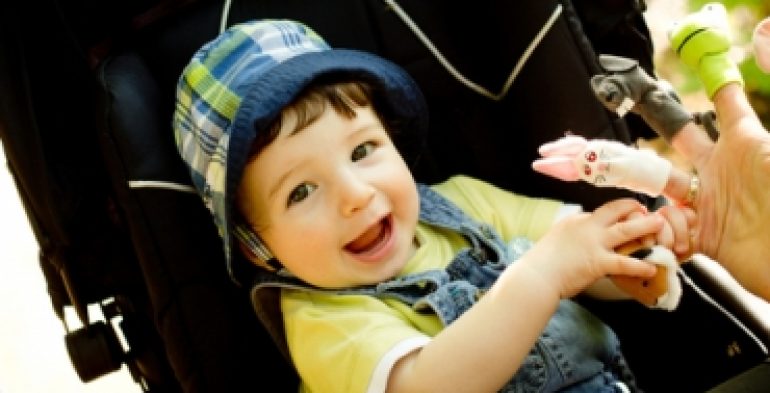

As a parent, you want to make sure you are doing everything you can for your new baby. Although babies develop at very different rates, the first six months are the most important of your child’s life – so you want to know exactly how you can help them at every stage. Below is a short guide to what is best for your baby during the early stages of their life.
3 months: Your baby will become aware of their hands and feet. They’ll probably be fascinated by them and attempt to place them. They will not yet have full control over their limbs, but their sense of touch is developing rapidly. This is the right age to introduce your baby to different textures. Have an array of materials for them to explore. As your baby will explore these toys with their mouth, ensure there are no sharp edges or small parts that could become lodged in their windpipe. Ensure you are playing and interacting with your baby throughout the day as skin-on-skin contact will keep them from becoming irritable or anxious.
4 months: By four months your baby may be showing signs of early teeth! Irritated gums and excessive dribbling is a common indicator they are on their way. Growing teeth are painful, so invest in rubber chews they can gnaw on to reduce the pressure. Around this time your baby’s hearing is also strengthening, so introduce them to music and encourage them to play with toys that make sounds such as rattles, drums, or xylophones.
5 months: Commonly known as the ‘affectionate month’ – this is when your child starts demanding cuddles as often as you do! They will start to hold out their arms and invite you to pick them up, often accompanied by early sounds like gurgling and blowing raspberries. There are more nerve endings in your baby’s mouth than anywhere else in their body, so be prepared for them to try and eat anything.
6 months: Soon they’ll be speaking, so ensure you talk to your baby constantly. Keep a running commentary of everything you are doing whilst repeating certain words to your baby. They will begin to memorize them and begin saying them back to you. You baby will also notice details now – not just your red shirt, but your dangly earrings, so allow them to inspect these. Also be aware that stranger anxiety is common at this age – they may cry and fret if someone other than you pick them up. Encouraging socialising and interaction via play dates and baby groups will ease their stress.
Each stage brings something new and interaction with your child will become more fun and interesting every day. Interaction of touch, play, soothing and talking are all essential for stimulating your child’s brain and helping them feel both curious and secure.








